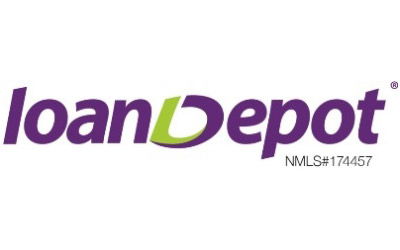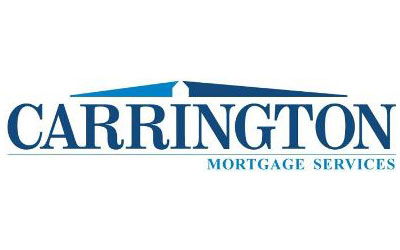Choosing the right mortgage lender could save you tens of thousands over the life of your loan. Rates, fees, and loan terms can vary more than you might expect—so it pays to compare lenders before committing.
Whether you want fast online approval, low down payment options, or more flexibility with credit requirements, it’s important to find a lender that fits your situation.
Best Mortgage Lenders & Online Loan Marketplaces of 2025
From online-only lenders to nationwide banks and credit unions, there’s no shortage of choices in today’s mortgage market. Some cater to borrowers with excellent credit, while others offer more lenient options for those rebuilding.
To help you get started, here are the best mortgage lenders of 2025 based on loan options, customer experience, and ease of application.
Rocket Mortgage
Rocket Mortgage is a top online mortgage lender known for its fast approvals and fully digital process.
New American Funding
New American Funding is a nationwide lender known for its personalized service and flexible loan options.
Rate
Rate is an online mortgage lender offering a streamlined digital application process and a wide range of loan options.
loanDepot
loanDepot offers a strong mix of digital tools and personalized support, making it a solid choice for homebuyers who want flexibility.
PenFed Credit Union
PenFed Credit Union is a strong option for borrowers looking for low rates and flexible mortgage options.
Alliant Credit Union
Alliant Credit Union is an online-only lender offering competitive mortgage rates and low fees.
PNC Bank
PNC Bank offers a wide range of mortgage products with options tailored to first-time buyers, low down payment borrowers, and those looking for closing cost assistance.
Veterans United
Veterans United is the nation’s largest VA lender, offering top-notch service and loan options tailored specifically for veterans, active-duty service members, and eligible spouses.
Carrington Mortgage Services
Carrington Mortgage Services specializes in helping borrowers with low credit scores or recent financial setbacks.
Newrez
Newrez offers a broad mix of mortgage options for a wide range of borrowers.
Additional Mortgage Lenders Worth Checking Out
The following lenders didn’t make our top 10, but they still offer competitive mortgage products and may be a good fit depending on your situation. Some have more limited availability, higher credit score requirements, or fewer loan options, but they’re still worth considering.
- Bank of America – Offers competitive rates and the Affordable Loan Solution® mortgage, but has more rigid lending criteria and limited flexibility for lower credit borrowers.
- CitiMortgage – Known for strong refinance options and closing cost discounts for Citi customers, but has a smaller share of the home loan market and fewer branch locations.
- PennyMac – One of the largest non-bank lenders, with a focus on online tools, though some buyers report higher fees and less personalized service.
- Navy Federal Credit Union – Excellent for VA and military loans, but you must be a member and affiliated with the armed forces, Department of Defense, or an eligible family member.
- U.S. Bank – Offers a solid range of loan products including construction loans and local loan officer support, but their rates aren’t always as competitive as online lenders.
How to Choose the Right Mortgage Lender for You
The best mortgage lender for one person may not be the best for someone else. Your financial situation, credit profile, and long-term goals all play a role in choosing the right fit. Here’s how to narrow it down based on your needs:
First-Time Homebuyers
Look for lenders that offer low down payment options, closing cost assistance, and step-by-step guidance. Lenders like New American Funding, Alliant Credit Union, and PNC Bank offer programs designed specifically for new buyers—including grants and flexible underwriting.
Low Credit Score Borrowers
If your credit score is below 620, your best bet is a lender that accepts FHA or VA loans and works with nontraditional credit. Carrington Mortgage Services and Newrez both have more flexible credit standards and offer non-QM options.
Self-Employed Borrowers
Traditional income documentation doesn’t always tell the full story for entrepreneurs. Look for lenders that specialize in bank statement loans or other self-employed-friendly programs. New American Funding and PenFed Credit Union offer options that cater to 1099 earners and business owners.
Veterans or Eligible Military
VA loan specialists like Veterans United and Navy Federal Credit Union understand the nuances of military benefits and can help you access a zero-down mortgage with no PMI. These lenders are built to serve current and former service members with dedicated support teams.
People Buying Expensive Homes (Jumbo Loans)
Not all lenders handle jumbo loans the same way. Look for competitive interest rates, lower down payment requirements, and experience with high-value property financing. Rocket Mortgage, PNC Bank, and Newrez all offer jumbo loan products with flexible terms.
What to Consider When Choosing a Mortgage Lender
Picking the right lender isn’t just about getting the lowest rate. Here’s what to compare as you shop around:
Compare Interest Rates and Loan Terms
Start by comparing rates from at least two or three lenders. Check whether the interest rate is fixed or adjustable, and ask how long your rate will be locked. Look at the full monthly payment—not just principal and interest, but taxes and insurance too.
Review Fees and Closing Costs
Closing costs typically run between 3% and 5% of the loan amount. Some fees, like title insurance, won’t change much between lenders. But others, like origination charges and discount points, can vary significantly. Ask for a Loan Estimate so you can compare apples to apples.
Ask About Down Payment Requirements
Different lenders have different minimums. Some allow as little as 3% down for conventional loans, while others specialize in no-down-payment programs like VA or USDA loans. If you’re putting down less than 20%, ask about private mortgage insurance (PMI) and how that affects your monthly payment.
Consider Property Taxes and Insurance
Your mortgage payment will include more than just the loan. Make sure any quote includes estimated property taxes and homeowners insurance, which can add hundreds of dollars per month depending on where you live.
Evaluate Customer Support
Some lenders offer 24/7 phone and chat support, while others assign a dedicated loan officer. If you prefer in-person help or want more guidance throughout the process, choose a lender that offers the service level you need.
Pre-Qualification vs. Pre-Approval: What’s the Difference?
If you’re planning to buy a home, it helps to get either pre-qualified or pre-approved before you start shopping. Here’s what each one means:
Pre-Qualification
This is an informal estimate of what you might qualify for, based on basic details like your income, debts, and estimated credit score. It’s fast, but not verified.
- No documentation required
- No hard credit pull
- Gives you a general price range
- Not strong enough to make an offer on a home
Pre-Approval
Pre-approval is more thorough and involves submitting documents like tax returns and bank statements. The lender checks your credit and verifies your financials before issuing a pre-approval letter.
- Requires full application and documents
- Includes a hard credit check
- Shows sellers you’re a serious buyer
- Lets you lock in a rate once your offer is accepted
Common Types of Mortgage Loans
Here’s a quick overview of the most common mortgage loan types. Knowing how each works can help you choose the right loan structure when comparing lenders.
- Conventional Loans – Not insured by the government. These loans typically require higher credit scores and larger down payments but often come with lower overall costs if you qualify.
- FHA Loans – Backed by the Federal Housing Administration, these are popular with first-time buyers and those with lower credit scores. Down payments can be as low as 3.5%.
- VA Loans – Designed for eligible veterans, active-duty service members, and military spouses. VA loans require no down payment or private mortgage insurance.
- USDA Loans – Available for qualified buyers in rural and certain suburban areas. These loans offer 100% financing and reduced mortgage insurance costs.
- Jumbo Loans – Used to finance homes that exceed conforming loan limits. These loans often require higher credit scores, larger down payments, and more documentation.
- Adjustable-Rate Mortgages (ARMs) – These start with a fixed interest rate for a set number of years, then adjust annually. They may offer lower initial payments but carry more risk over time.
- Fixed-Rate Mortgages – These offer stable monthly payments with an interest rate that doesn’t change over the life of the loan. Available in various term lengths, with 15- and 30-year terms being the most common.
- Interest-Only Mortgages – These allow you to pay only the interest for a set period, after which you begin paying principal. They’re typically suited for high-income borrowers with irregular cash flow or those planning to sell or refinance within a few years.
How to Choose the Right Type of Mortgage
Before you apply, think about your financial situation and long-term plans. The right loan depends on how much cash you have, your credit score, and how long you plan to stay in the home.
Ask yourself:
- How steady is my income?
- How much can I afford to put down?
- Will I be in this home long enough to justify upfront costs?
If You Have Strong Credit and a 5–20% Down Payment:
A conventional loan may offer the best rate and lowest overall cost.
If You Have Limited Cash or Lower Credit:
Consider a government-backed loan like FHA, VA, or USDA. These programs allow lower credit scores and smaller down payments, and VA loans don’t require mortgage insurance.
If You’re Buying a High-Priced Home:
A jumbo loan may be necessary if your loan amount exceeds conforming limits in your area. These loans typically require higher credit scores and more documentation.
Final Thoughts
The right mortgage lender can save you money, reduce stress, and speed up the homebuying process. Take the time to compare rates, fees, and loan options—and choose the lender that fits your financial situation and goals.
Whether you’re a first-time buyer, a military veteran, or purchasing your next investment property, the lenders on this list offer strong options for every type of borrower.
Frequently Asked Questions
How do I get the best mortgage rate?
To get the best mortgage rate, start by improving your credit score, lowering your debt-to-income ratio, and saving for a larger down payment. Then, shop around—get quotes from at least three lenders, including a mix of banks, credit unions, and online lenders.
You can also consider paying discount points upfront to reduce your interest rate long term. Finally, get pre-approved so you can lock in the most competitive rate once you’re ready to buy.
Can I switch mortgage lenders before closing?
Yes, you can switch lenders before closing, but it can delay the process and may cost you if you’ve already paid for an appraisal or credit check. If you find a better rate or better terms, it might still be worth the switch—just make sure to compare the full cost before moving forward.
What is a loan estimate, and why does it matter?
A Loan Estimate is a standardized document that outlines your loan terms, interest rate, monthly payment, and closing costs. Lenders are required to provide it within three business days of receiving your application. Use it to compare offers from different lenders on an apples-to-apples basis.
Do all lenders offer rate locks?
Most lenders offer rate locks, which allow you to secure your quoted interest rate for a set period—usually 30 to 60 days. This protects you from market rate increases while you’re finalizing your home purchase. Be sure to ask if the rate lock is free or if there’s a fee.
Can I get a mortgage if I’m still paying off student loans?
Yes, you can qualify for a mortgage even with student loans. Lenders will look at your debt-to-income (DTI) ratio to determine whether your current payments, including student loans, are manageable alongside a mortgage. A lower DTI improves your chances of approval.
Do credit unions offer better mortgage rates than banks?
Sometimes. Credit unions often offer lower fees and slightly better rates, especially for members in good standing. However, they may have more limited loan options or slower processing times compared to online lenders and large banks. It’s worth getting a quote from both.













